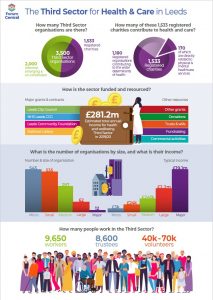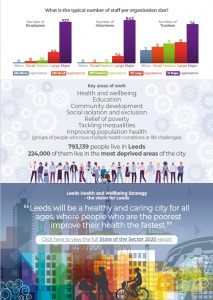The latest State of the Third Sector in Leeds report – Published in 2023 with 2022 data
The most recent State of the Third Sector in Leeds report is sponsored by TSL, co-funded and co-produced by Forum Central and Voluntary Action Leeds and prepared by Nifty Sustainability CIC.
Building on previous research in 2020 this report examines underpinning data to provide an important insight into the scope and reach of the third sector in Leeds. It demonstrates that in its diversity and range of services, the third sector continues to play a vital role in our city’s communities and ecosystem.
Between 2020 and 2022, the sector has experienced a:
- 10% drop in the number of registered (charitable) organisations
- 25% drop in the number of volunteers reported to the charity commission
- 34% drop in the paid workforce
For further findings, view the infographic and read the full report, which is structured as follows:
- Executive summary
- Approach and methodology
- What has changed and why it matters relating to:
- The composition of the Sector, its overall size, the number and size of organisations, and the income it generates
- Communities, beneficiary groups, and areas of work
- Funding and finance
- People working and volunteering in the Sector
Third Sector Leeds (TSL) Response
TSL has released a response which highlights key learnings and actions: TSL Response to State of the Sector Report Update 2022/23.
2022/23 Resources and Downloads
Infographic of key findings
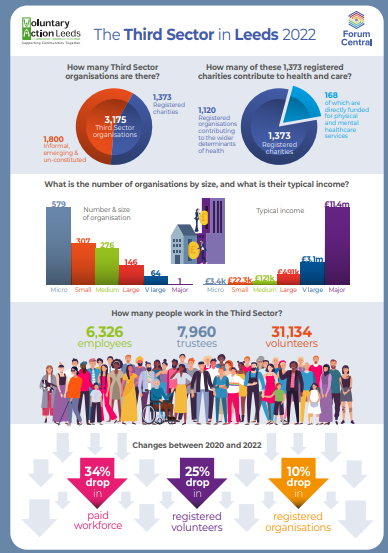
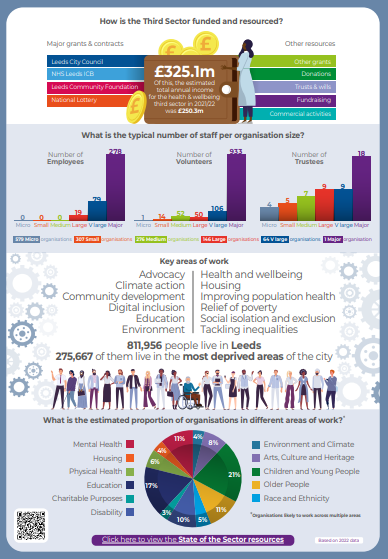
State of the Sector 2020
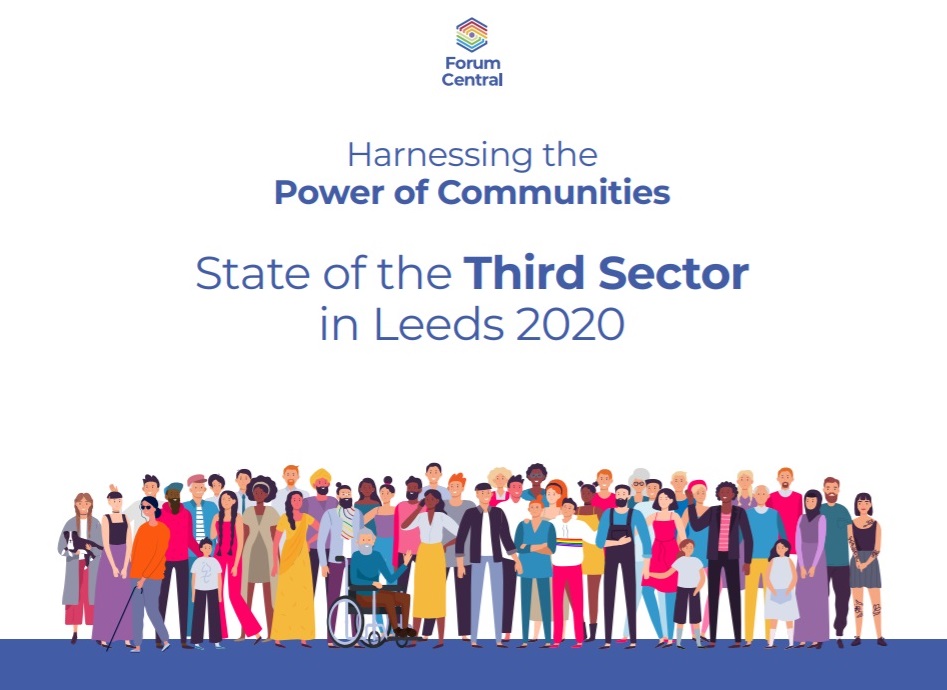
The State of the Sector Report has been produced by Nifty Sustainability CIC and Leeds Beckett as part of Harnessing the Power of Communities work, funded by West Yorkshire and Harrogate Health and Care Partnership and NHS Leeds Clinical Commissioning Group, to make sure the third sector is a sustainable, central part of the health and care system – recognising that the person-centred approach of the third sector is key.
The findings have been carefully reviewed to identify gaps and where additional research is needed, particularly to ensure underrepresented groups and least heard voices are reflected.
